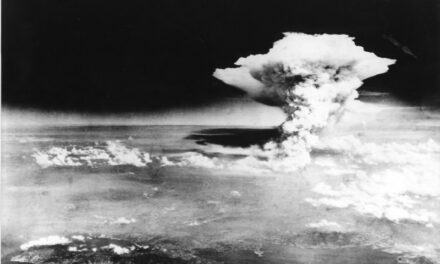Let's move on to the fourth, special area, namely the circle of people involved in the secret services of the former dictatorship. In this regard, the situation is relatively simple, although it is far from reassuring.
Two months before the first free elections, in January 1990, in connection with a wiretapping scandal, the last government of the previous regime abolished the III/III group leadership, i.e. the state socialist political police - in February 1990. The group leadership was therefore abolished, most of the employees were let go; according to certain estimates, the number of this "left" guard can be put at 500-600 people, and it is absolutely impossible to know where, where, and in what positions they continued their careers in this country. It is also a fact that the list of those involved in the secret service of the former regime has not been made public or made available to this day (as happened in Germany), so that a guard of several hundred people - it seems - has completely disappeared from the body of the country, one could even say that it has become completely invisible , became uncontrollable.
At the same time, it is also a fact that this guard, the secret service people of the dictatorship, were tied to the nomenclature by a thousand threads, all the more so because the political leaders received their reports regularly. But beyond this, the top and middle managers of the secret service also maintained close personal relationships with the political leadership and, due to the nature of their work, also with economic and other leaders. Nevertheless, the secret service in the strictest sense of the word meant a network that connected the networks of the political, economic, cultural, media and other spheres. Well, this intermediary network has broken down, but with fairly simple logic it can be assumed that long-standing and strictly confidential personal relationships do not amount to some kind of magic word. It can be assumed that the guard of this extremely well-informed ex-secret service scattered throughout society has not changed its political sympathies, and it can be assumed that - if it does, of course - it will put its existing knowledge and information at the service of the socialist power center.
Proving the existence of this "invisible" network is, of course, practically impossible.
However, it can be stated that if a formally existing institution functions only if its leaders are recognized as legitimate by subordinates and thereby carry out the instructions, then it is also true that even if an institution is formally liquidated, but the guard that operates it exists and it is assumed that there is a connection between them, then we cannot talk about the final termination of the institution. To all this, let us add that while the III/III class was disbanded, the Antall government entrusted the reorganization of the III Group Chiefship after free elections to none other than Szilveszter Harangozó, the III/III Group Chiefship, and then the entire III- as the head of the Main Group Chiefship, the most hated figure of the previous communist dictatorship. Moreover, the government even gave him an office for his work, which he did together with Major General Miklós Rédei. The liquidation of the Main Group Headquarters by their hands meant nothing more than the transfer of the majority of the personnel to the new system. Nobody ever held Szilveszter Harangozó responsible, just like Gábor Péter , the dreaded and bloodthirsty leader of ÁVÓ and ÁVH. Gábor Péter died in 1993, and Szilveszter Harangozó also lived peacefully in his Rózsadombi villa until his death in 2011.
According to estimates, about forty (!) percent of communist secret service employees and seventy (!) percent of their leaders remained in office after the regime change, even in the democratic system. This is an alarming number, but many people defend the lack of personnel exchanges in the most hated area of the dictatorship by saying that even in the new, democratic system, counter-espionage, intelligence, and military counter-experts were needed, and this was not available to the new government. The argument could be partially valid, but there is absolutely no explanation as to why at least the leaders of the secret services that served the communist dictatorship the most were not removed , since in their case the democratically elected government could hardly expect loyalty. It is impossible to give an acceptable explanation for this, and an unacceptable one is not worth it...
In addition to the four spheres - politics, economy, media, ex-secret service people - it must be mentioned that during the regime change there was also a lack of accountability in the fields of science and culture, essentially the left-liberal elite remained in place here , the MTA from to universities. Bertalan Andrásfalvy , the minister of culture and public education of the Antall government, did initiate screening and personnel exchanges in these areas, but, as he said in the TV series Szabadság Tér '89, when he approached József Antall with this plan, he received the answer from the prime minister that "that's not what the agreement was about..."
In addition, there were no personnel exchanges in the three basic areas of justice, the courts, the prosecution and the police. Because the due diligence did not take place in these areas either, not even within the narrow framework established by Act III/III. As a result, the "old guard" remained almost unchanged. Perhaps there is no need to say how important this is in terms of the establishment of a democratic state of law, and how destructive it can be. of the latter is the court jurisprudence of the last thirty years, during which, on the one hand, verdicts are delayed or not delivered in scandalous cases that irritate the whole country (see previously: Tocsik case, oil bleaching, privatization cases, broker scandal, later the police brutalities of 2006, etc.) , on the other hand, very often conflicting judgments are made at the first and second level , which is also a consequence of the fact that in the meantime, of course, a natural change related to aging has started in these areas as well.
In summary..., one of the most disadvantageous and still affecting negative legacies of the Hungarian regime change and democratization is the lack of accountability and exchange of elites. Mária Schmidt's sharp formulation, "The entire Hungarian society has paid and is paying a heavy price for the lack of justice. The lack of law-abiding behavior, the devaluation of moral values, and the relativization of personal responsibility undermine the foundations of the civil democratic system. The opinion-forming intelligentsia has a particularly big responsibility in this."
Author: Tamás Fricz, political scientist
(to be continued)













